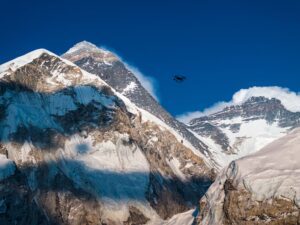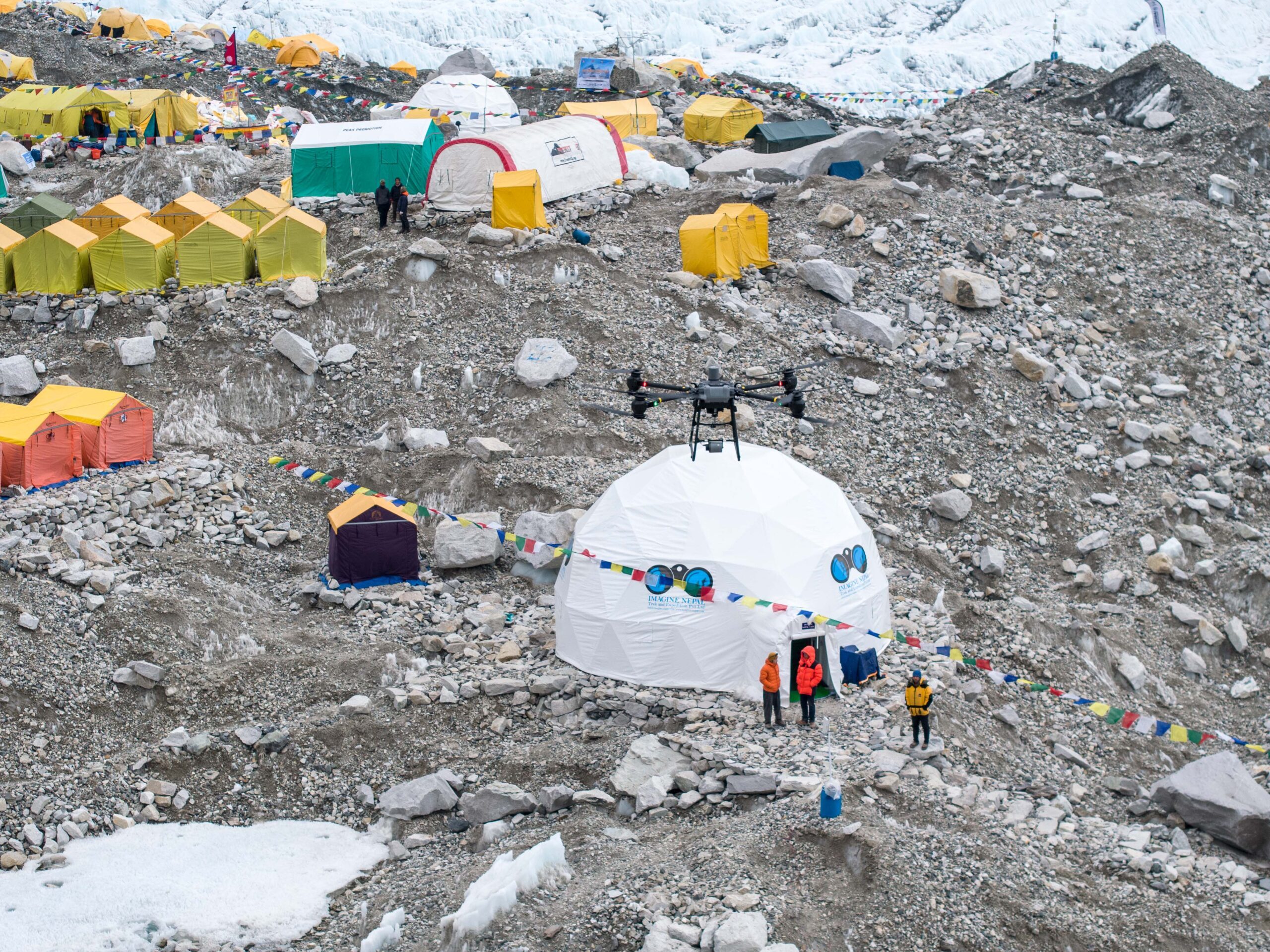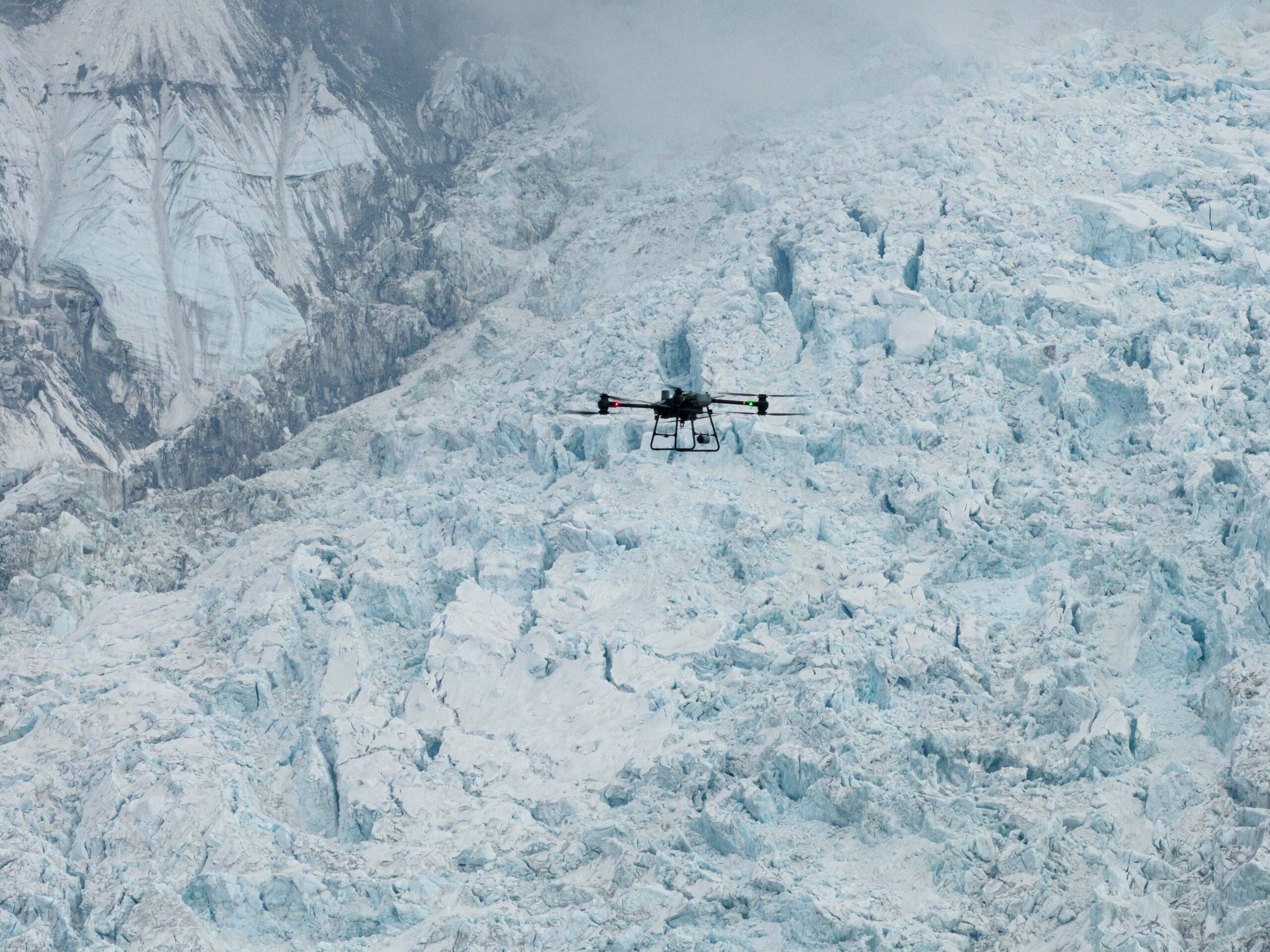 DJI Delivery Drone, Flycart 30, Showcases High-Altitude Capabilities with Successful Supply and Trash Transport Between Everest Basecamp and Camp 1, Reducing Risks for Sherpas and Promoting Environmental Responsibility
DJI Delivery Drone, Flycart 30, Showcases High-Altitude Capabilities with Successful Supply and Trash Transport Between Everest Basecamp and Camp 1, Reducing Risks for Sherpas and Promoting Environmental Responsibility
by DRONELIFE Staff Writer Ian J. McNabb
Drone manufacturer and services provider DJI recently announced a new partnership with Nepali drone service company Airlift, video production company 8KRAW, and Nepalese certified mountain guide Mingma Gyalje Sherpa to conduct the first successful drone delivery trials on Mount Everest, (known locally as Mount Qomolangma). Completed in April, the trial was designed to test and showcase the abilities of the new DJI Flycart 30, which received Remote ID certification last December and features a 15kg (33lbs) payload even at the high altitude and extreme conditions of Everest, one of the toughest operating environments on Earth.

During the test, three oxygen bottles and 1.5kg (3.3lbs) of other supplies were flown from the Everest Basecamp (already at a dizzyingly high 17,000 feet above sea level) up to Camp 1, at nearly 20,000 ft of elevation. On the return trip, the drone carried trash. The two camps are separated by the Khumbu Icefalls, one of the most perilous parts of the ascent, making it difficult to carry supplies between the two areas. While helicopters could theoretically complete the same delivery, this is cost-prohibitive and environmentally irresponsible, not to mention the dangers of operating in such a cold, oxygen-low environment.


Traditionally, this means that the risks and burden fall upon Nepalese Sherpa guides, who may need to cross the icefall over 30 times to deliver needed supplies. “We need to spend 6-8 hours each day walking through this icefall,” said Mingma Gyalje Sherpa, Imagine Nepal mountain guide. “Last year I lost three Sherpas. If we’re not lucky, if our time is not right, we lose our life there.” The extremely hazardous climb is usually undertaken at night, when temperatures are lowest and the ice is most stable, but the Flycart can complete the 12-minute round trip at any time of day, easing the burden.
In addition, the drone can be used to take trash away from the mountain, which has become a hotbed of littering, with every climber estimated to leave around 8kg of trash behind.
While the climbing season has already ended (its restricted to April and May), the Nepalese government has contracted with a local supplier to begin drone delivery operations starting on May 22, 2024. For more information on DJI and the Flycart 30, click here.
Miriam McNabb is the Editor-in-Chief of DRONELIFE and CEO of JobForDrones, a professional drone services marketplace, and a fascinated observer of the emerging drone industry and the regulatory environment for drones. Miriam has penned over 3,000 articles focused on the commercial drone space and is an international speaker and recognized figure in the industry. Miriam has a degree from the University of Chicago and over 20 years of experience in high tech sales and marketing for new technologies.
For drone industry consulting or writing, Email Miriam.
TWITTER:@spaldingbarker
Subscribe to DroneLife here.




